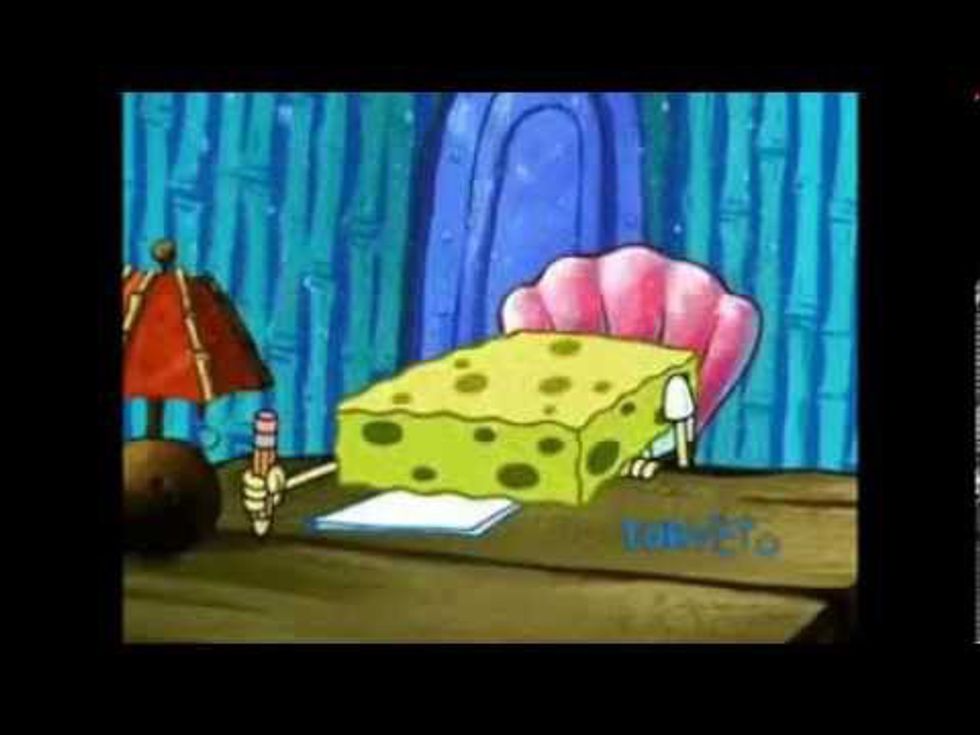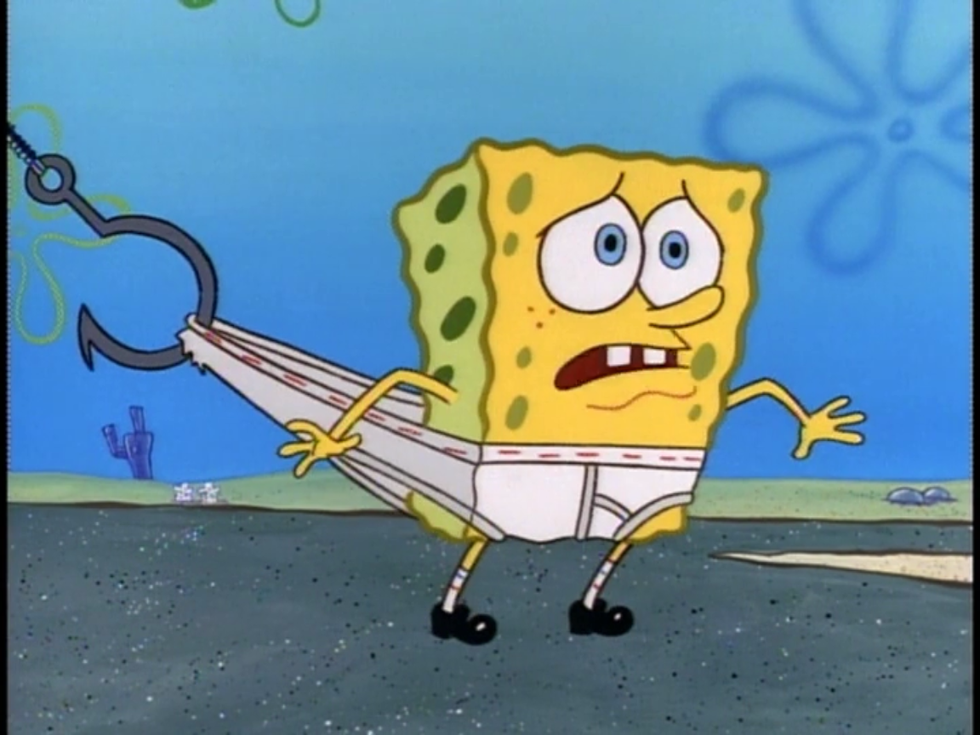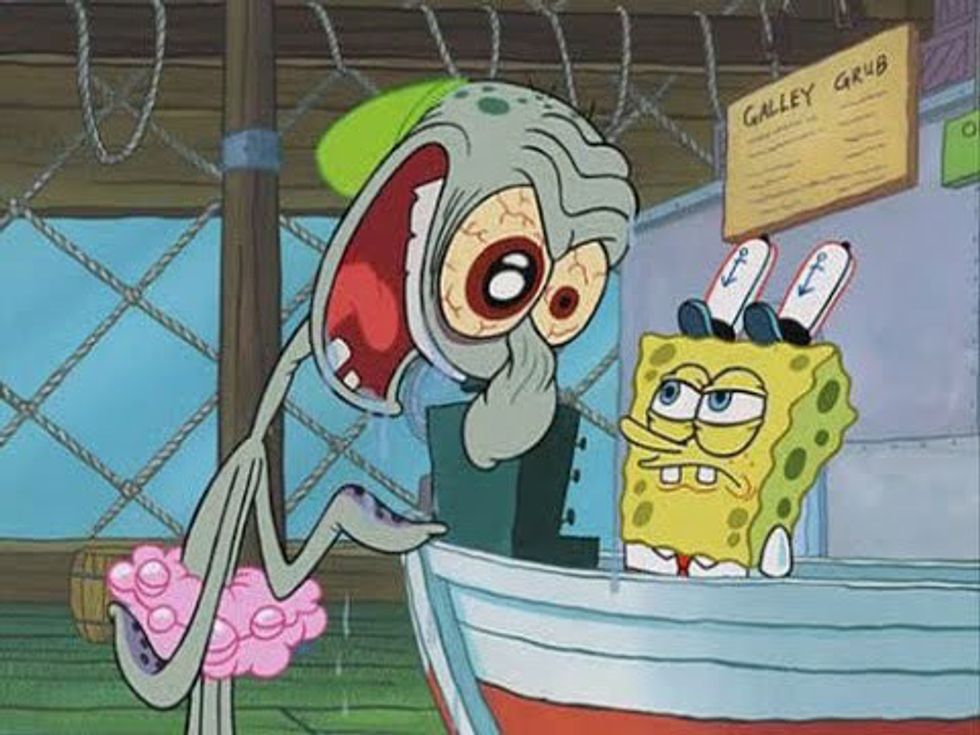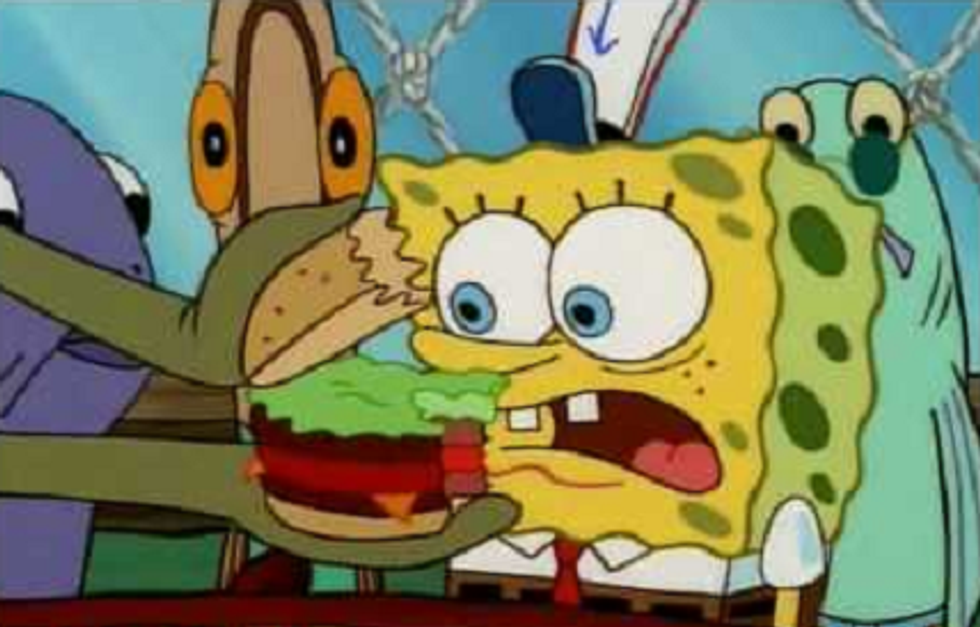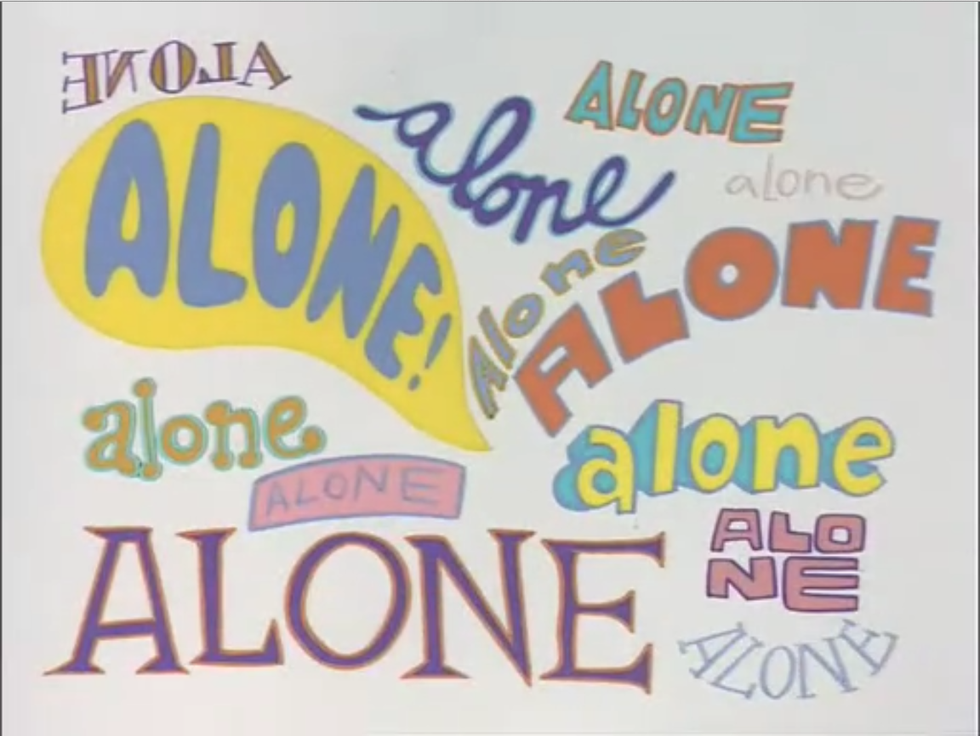" Spongebob Squarepants" is one of those rare children's cartoons that is loved equally by kids and adults alike. This is partly because of its great sense of humor, but also because of its willingness to explore complex themes that are more mature than its silly animated characters would suggest.
Here are my top five picks for the deepest and most insightful episodes of Spongebob.
5. "Procrastination"
Is there any student out there who can’t relate to this episode?
"Procrastination" has always been remembered as one of the most intense and frightening Spongebob episodes, but it’s also one of the truest. What’s interesting is that this episode, while it may be a little dramatic, is actually a highly-realistic portrayal of procrastination and its effects on people.
In the beginning, Spongebob is excited to write his 800-word essay; boating is a topic that he’s fairly passionate about, after all. But as the hours pass and Spongebob avoids the task again and again, we see a simple essay turn into a source of pure existential horror.
All of the usual symptoms are there: sleep deprivation, delusions, a fascination with the mundane, spontaneous house fires… the list goes on. Any student can tell you how real Spongebob’s struggles are here.
And in the end, Spongebob does the same thing that every real-world student does: complete the entire essay within a few minutes of the deadline, and then realize that the work was not all that difficult to begin with.
Source: Youtube.com
Plain and simple, "Hooky" is a story about the modern war on drugs. You have your two young protagonists, naive and rebellious, and your concerned parental figures, protective but misguided. And of course you have the hooks, the physical embodiments of dangerous, addictive pleasure.
But where most children’s shows would stop there, content with teaching a simple lesson about listening to mom and dad, Spongebob Squarepants goes a step further. Despite the fact that Spongebob and Patrick ride the hooks countless times during the episode, neither of them is ever hauled to the surface, served with a side of mayonnaise, or (even worse!) sold in a tacky seaside gift shop.
In fact, when Spongebob finally does find himself hooked, it is at the hands of Mr. Krabs himself! Mr. Krabs, who has been warning the boys about the hooks all along, is the only one to actually reel Spongebob in. By the end of the episode, the worst thing that has happened to Spongebob is Mr. Krabs’ embarrassing punishment.
The true genius of "Hooky" lies in this nuanced perspective. Yes, the hooks are a real and dangerous threat; Patrick even ends up in a can of tuna at the very end of the episode. But the fact is that Mr. Krabs’ severe stance on hooks caused Spongebob more trouble than the hooks ever did themselves.
3. "Squid’s Day Off"
Source: Youtube.com
One of the major themes of Spongebob Squarepants is menial labor and its effects on those who must perform it for a living. Nowhere is this theme more prominent than in "Squid’s Day Off".
The episode begins with Mr. Krabs (the quintessential greedy boss) injuring himself in an attempt to save a nickel from going down the drain. This leaves Squidward (the frustrated employee) in charge for the day.
I love the way this episode emphasizes the differences between Spongebob and Squidward. On one hand, Spongebob is the perfect employee from Mr. Krabs’ perspective: he is (apparently) very skilled, frighteningly obedient and ridiculously passionate about his job. Squidward on the other hand, is Mr. Krabs’ worst nightmare: he is lazy, contemptuous and demands respect from his boss.
But Spongebob comes out on top time and time again. His vivacious personality and optimistic spirit enable him to savor every moment of his minimum-wage drudgery. Instead of lamenting that Squidward has placed the entire workload on him, Spongebob rejoices because he gets to wear two hats for the day instead of one.
Squidward, of course, is miserable even when he is in charge of things. Even when he tries to relax at home, he is tormented by the possibility that Spongebob will destroy the Krusty Krab if left to his own devices. Although he outwardly hates Mr. Krabs and his restaurant, he cannot help but hold its success above his own personal desires. Ultimately Squidward’s own laziness drives him insane, which suggests that he will never truly escape the trappings of his job at the cash register.
2. "Pickles"
Source: Spongebob.wikia.com
"Pickles" is a beautiful and universal story about artistic redemption and the fragility of human confidence. No, really, it is.
This episode shows us a darker and more sensitive side to Spongebob when he forgets to add pickles to a krabby patty. His mistake leads him to believe that he has lost his greatest talent: the ability to make a krabby patty. This is significant because, to Spongebob, a krabby patty is more than just a sandwich, it is the very source of his confidence. Spongebob does not see himself as a fry cook, but as an artist. The grill is his canvas and the krabby patty is his greatest work of art.
From this perspective, it is easy to see why those two pickles are such a problem. In the real world, little things like pickles really are enough to undermine a person’s confidence: they are that one blemish, that one flaw that makes us question everything else we’ve done. When Spongebob tumbles into a downward spiral of anxiety and self-loathing, he is all of us. He is everybody who has ever made a mistake and thought about it for longer than they should.
But Spongebob also offers us a message of hope and redemption. Eventually, he finds his confidence again. After many nights of intense concentration, Spongebob comes to realize that he can put a krabby patty together. In the end, we see that it was Spongebob’s own self-doubt (and Bubblebass’ trickery) that was holding him back all along.
1. "SB-129"
Source: Youtube.com
Ah, yes. The time travel episode. This one offers some of the show’s deepest insights about relationships and the universe, and is also my personal favorite.
Squidward is tired of Spongebob and Patrick constantly asking him to go jellyfishing, so he decides to seek refuge in the Krusty Krab’s refrigerator. It sounds a little extreme, but we’ve all been there. We’ve all had that annoying friend that just won’t leave us alone.
Unfortunately, Spongebob and Patrick are not smart enough to find Squidward’s hiding place. Even worse is that nobody else cares enough about Squidward to come looking for him. This is kind of depressing, and it foreshadows the main theme of the episode: Spongebob and Patrick are Squidward’s best and only friends.
Over the course of the episode, Squidward travels to the distant future, the ancient past, and to a strange and unsettling purgatory in which time no longer seems to exist. It is here that Squidward finally finds the thing that he supposedly desires most: solitude.
Of course, it is this intense solitude that changes Squidward’s mind in the end. He realizes that isolation is nothing to be desired and that Spongebob and Patrick’s company is infinitely better than nothing.
Throughout the episode, Squidward encounters various iterations of his two friends at different points in time. The constant theme here is that Spongebob and Patrick are always there and always willing to be Squidward’s friends. In the end, Squidward is forced to confront one of the great truths of human experience: the people who bother us the most are also the ones who make us feel loved.




